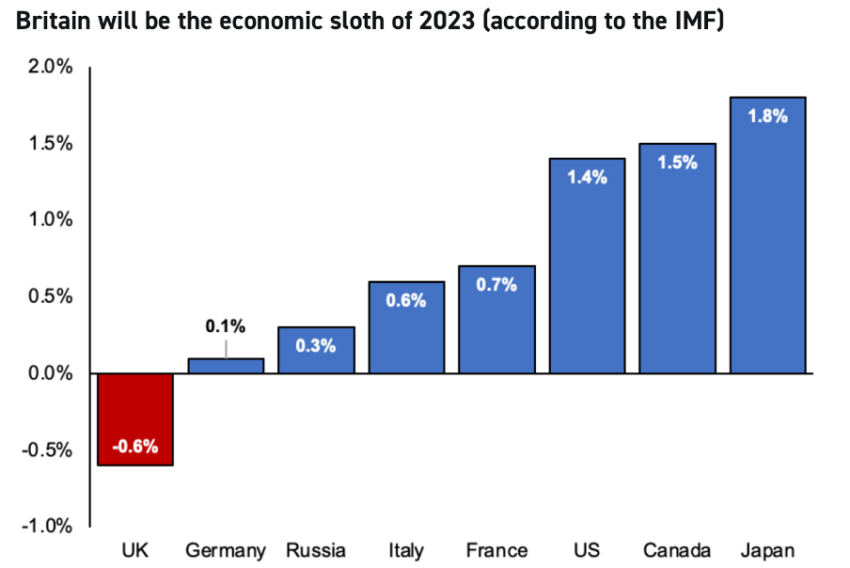Crypto industries saw not-so-appealing outcomes emerge last year following multiple collapses. Aligned with the fall, investments continue to dry within the fintech industry in the United Kingdom. Other sectors have suffered a similar fate under the new regime in UK politics.
The UK economy has faced significant challenges in recent years due to various factors: Brexit uncertainty, global economic slowdown, and the COVID-19 pandemic. These challenges have negatively impacted multiple sectors, including fintech investment and cryptocurrency.
According to a report by Innovate Finance, a trade association for the UK fintech industry, fintech investment in the UK scăzut by 39% in 2020 compared to 2019. The decline can be attributed to several factors, such as the economic uncertainty caused by Brexit, the pandemic, and the tightening of regulations.
Crypto Contagion on the Fintech Sector
While 2020 was the beginning, last year witnessed a similar outcome – evident in KPMG’s Pulse of Fintech report comun with BeInCrypto by Bloomberg. The fintech sector saw a decline in funding from $22 billion, with 724 deals to $17 billion, and 593 deals in 2022. The report attributes the drop to ‘higher interest rates, inflaţiei, and declines in valuations hitting investor appetite.’
“The variance highlights the shift in investor sentiment in the face of increasing geopolitical challenges leading to the lack of IPO exits, the downward pressure on valuations, and market turbulence,” a partner at KPMG asserted.
The drop here mirrored the decline in investments for one of the cohorts – cryptocurrency. Global investment in crypto and blockchain firms fell from $30 billion in 2021 to $23.10 billion in 2022. Not surprisingly, the crypto contagion triggered by collapses such as FTX last year had a rippling effect on the entire fintech domain.
The government has taken a rigorous approach to centralize the crypto industry. For instance, the British government launched various programs to crack down on crypto-linked initiatives. This included ATM-uri, anunțuri, aspru regulatory measures, and more.
What Could Have Caused the Fintech Investment Fall?
Various experts have blamed the strict government regulations behind the stated demise. UK startups and investors raised red flags around existing government laws that appear to counter the country’s ambition of remaining a global fintech leader. Some factors include the recent pulling of crucial funding to the government-backed industry body, Tech Nation. Additionally, the lack of visas to attract startup talent and the removal of tax relief for research and development.
Peste regiuni, the EU is expected to grow 0.80%, and the Republic of Ireland will grow 5% in 2023. At the same time, the UK is likely to shrink by 0.60%, as per the International Monetary Fund (IMF).

Even for the decline in the crypto sector, one of the Redditors, while speaking to BeInCrypto, stated:
“Government policy seems to be causing (crypto) carnage, and UKGov is not listening.”
Cracks Visible Across Different Ceilings
In addition, different locals have voiced a similar concern on Reddit (r/UKpolitics) across various sectors in the UK that saw the same picture — for instance, the car manufacturing industry. Citing the apparent risk, more than 22,000 UK car industry jobs were at stake. This aligns with transitioning from the traditional regime to the upcoming elective-driven cars. The bulk of the UK job losses will affect the company’s technical center in Dunton, Essex, which has about 3,400 workers.
Meanwhile, domains such as the pharmaceutical sector could soon reach a punct de basculare as firms chose other regions with a relatively lower tax structure. In 2022, five companies decided on the UK’s voluntary scheme that manages branded medicines spending. The departure of two big firms – AbbVie and Lilly – is a deliberate tactic to signal to the government that the system is not working for industry, and jeopardizes investment and access to medicines in the UK.
‘I don’t understand the rationale behind this strategy – is this the result of Brexit ideology? It would seem less risky to listen to the businesses already based here and support them rather than abandon the EU-oriented companies in an attempt to diversify to India etc. Or are UKGov simply trying to squeeze every last drop of blood from our extant industries to pay down some of the massive public debt?’ a Redditor told BeInCrypto.
“Whatever the explanation, it seems like a terribly short-sighted strategy that will compound the UK’s economic problems as these businesses begin to exit.”
Expectations in the Ongoing Year
Despite the challenges, there are still opportunities for the fintech sector to thrive in the UK. The government has shown support for the industry, and efforts are underway to create a more favorable environment for fintech investment. Additionally, the pandemic has accelerated the adoption of digital technologies, which could lead to increased demand for fintech services.
Economia digitală ministru Paul Scully stabilit that despite global headwinds, ‘British FinTech firms showed great resilience last year and helped boost the UK’s status as a world leader in tech – delivering jobs and huge economic benefits.’
“In 2023, we are focusing on maintaining that lead by supporting start-ups, boosting digital skills, and making this country an even more attractive destination to found, grow, and invest in tech businesses.”
Can this be achieved, or will the economy see a bounce back? Only time will tell.
Declinare a responsabilităţii
Toate informațiile conținute pe site-ul nostru web sunt publicate cu bună-credință și numai în scopuri generale. Orice acțiune pe care cititorul o ia asupra informațiilor găsite pe site-ul nostru este strict pe propria răspundere.
Source: https://beincrypto.com/crypto-fintech-investment-deals-uk-lost-billions-kpmg/
